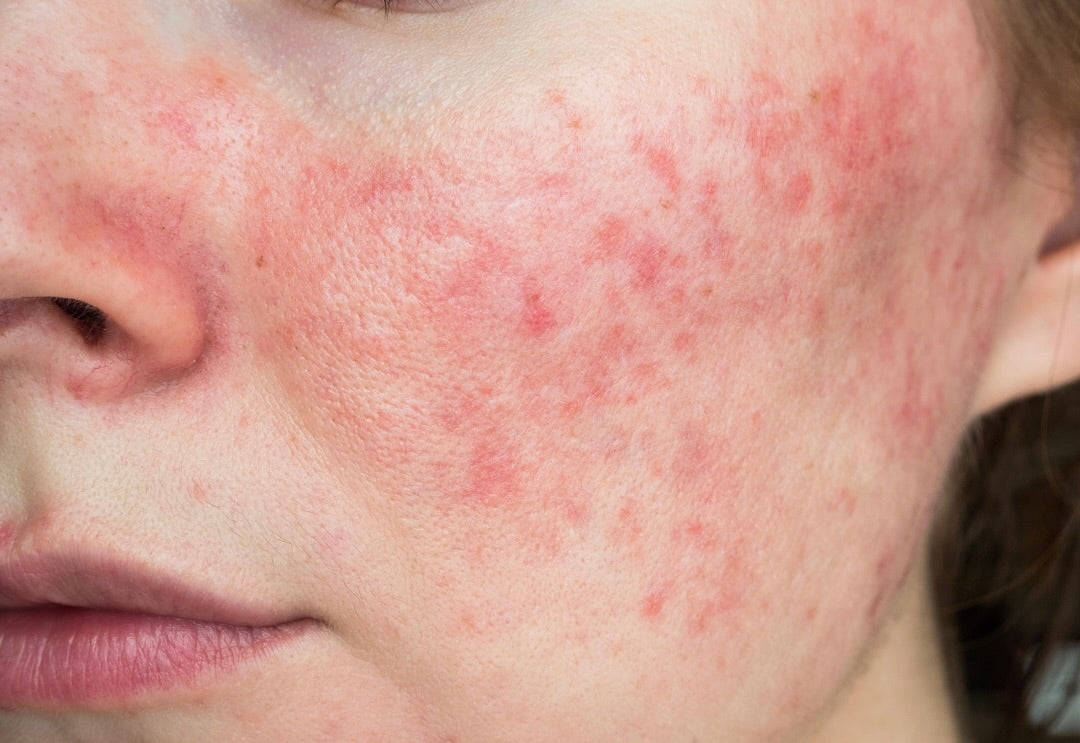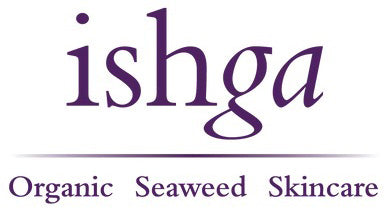
What is Rosacea?
Share
Rosacea (roe-ZAY-she-uh) is a skin condition that mainly affects the face and is usually more common in women than men. It leads to blood vessels becoming more visible, causing blushing or flushing of the skin. The condition may also cause small pus-filled bumps to appear, which can be mistaken for acne. Flare ups can last from weeks to months and then disappear for a while. Although there is no cure for rosacea, there are treatments and lifestyle factors that may help to control and reduce the flare-ups.
Symptoms
The main symptoms of rosacea include:
- Facial blushing or flushing
- Irritated, swollen eyes
- Visible veins
- Dry skin
- Pimples
- Thickened skin - mainly on the nose (can appear years later)
- Burning sensation - the skin of the affected area may feel hot and tender
What can cause rosacea?
There is no known cause for rosacea but there are some lifestyle factors that can trigger a flare up. The most common triggers include:
- Alcohol
- Stress
- Heat
- Spicy foods
- Cheese
- Caffeine
- Hot drinks
- Exercise
Treatment
While there is no known cure for rosacea there are some remedies, natural and prescribed, that may help reduce the symptoms.
-
Use products that are organic and natural
Eliminating artificial ingredients from your skincare products may help reduce the chance of your rosacea flaring up. At ishga, we are proud that we don't use synthetic ingredients, such as fragrances and dyes, that for some sufferers may bring a higher risk of a flare up. We only use the natural and highest-quality ingredients. When using natural skincare products, allow two to three weeks to adjust and review any changes.
- Use products that contain anti-inflammatories
The anti-inflammatory properties found in seaweed are especially beneficial for those with sensitive or prone to rosacea. Seaweed is naturally rich in minerals like zinc and magnesium which can help to soothe the skin and contains high levels of iodine which has been known to support cell regeneration.
- Change your pillowcase regularly
Dead skin cells, dirt and oil from your face can accumulate on your pillowcase and clog your pores, resulting in a breakout of rosacea pimples. Use a hypoallergenic washing powder and switch synthetic pillowcases for pure cotton or silk ones (a treat for your skin!).
- De-stress
Meditation, yoga or some focused, deep breathing can help to alleviate any stress you might be feeling, helping you to cope and ease tension. Cortisol (the stress hormone) can increase the skin’s oil production and lead to clogged pores and inflammation, so trying to balance this can help to achieve a healthier complexion.
- Food allergies
We mentioned that some foods can act as triggers for the condition, but it's also possible that a food allergy may be causing your rosacea to flare up. The easiest way to tell if a certain ingredient is responsible is to eliminate particular foods from your diet over a two to three-week period, gradually adding it back in to see if a reaction occurs. Please consult your GP or dietician when making any significant lifestyle or diet changes.
Treatment from a GP
If the conditions worsens and no natural remedies are working, then it may be beneficial to visit your GP. They will be able to talk you through the different options that are available.




